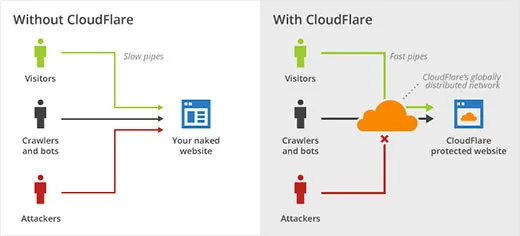Introduction
Your online accounts are treasure troves of personal, financial, and professional data. Hackers aren’t just going after big corporations—they target everyday users to steal identities, drain bank accounts, and wreak havoc. Surprisingly, some of the most overlooked accounts are also the most valuable to cybercriminals.
In this guide, we’ll uncover 10 types of accounts hackers love to compromise, why they’re prime targets, and most importantly, how you can secure them with practical, up-to-date tips.
Why Hackers Target Specific Accounts
Cybercriminals don’t just target accounts at random. They go after platforms that:
- Store personal identifiable information (PII)
- Provide financial access or sensitive documents
- Act as a gateway to other accounts (like email or cloud storage)
- Can be used for social engineering attacks
Once inside, hackers can sell your data on the dark web, scam your contacts, or blackmail you with sensitive content. That’s why locking down these critical accounts is essential in 2025.
1. Email Accounts
Why Hackers Love It:
Your email account is the skeleton key to your digital life. From password reset links to personal messages and contact lists, it can unlock access to almost every other account you own.
What Hackers Can Do:
- Reset passwords on banking, cloud, and social media accounts
- Impersonate you to scam others
- Access sensitive information like tax files, contracts, or medical records
How to Secure It:
- Use a strong, unique password
- Enable two-factor authentication (2FA)
- Review login activity regularly
- Avoid using email addresses as usernames across all platforms
2. Cloud Storage Accounts (Google Drive, iCloud, Dropbox)
Why Hackers Love It:
Cloud accounts store everything from family photos to tax returns and legal documents. These files often contain names, addresses, SSNs, and financial data.
What Hackers Can Do:
- Steal sensitive documents
- Access synced devices
- Launch blackmail or identity theft attacks
- Delete or corrupt important data
How to Secure It:
- Enable 2FA
- Use encryption for highly sensitive files
- Set shared folder permissions carefully
- Use device security (Face ID, strong passcodes)
3. Banking and Financial Accounts
Why Hackers Love It:
Obvious reasons—money, money, money. Direct access to checking accounts, credit cards, or digital wallets like PayPal means quick profit.
What Hackers Can Do:
- Transfer funds
- Make unauthorized purchases
- Open fraudulent loans or credit cards in your name
How to Secure It:
- Set up transaction alerts
- Use 2FA or biometric verification
- Monitor accounts with credit monitoring tools
- Avoid accessing financial sites on public Wi-Fi
4. Social Media Accounts
Why Hackers Love It:
Social platforms like Facebook, Instagram, and Twitter are goldmines for personal data, photos, and contacts. They also allow hackers to impersonate you.
What Hackers Can Do:
- Run scams on your friends and followers
- Leak or manipulate private photos/messages
- Damage your reputation
How to Secure It:
- Limit app permissions and connected third-party apps
- Use strong passwords + 2FA
- Don’t reuse passwords across platforms
- Keep private data out of public bios and posts
5. Shopping Accounts (Amazon, eBay, Walmart, etc.)
Why Hackers Love It:
Online retail accounts store credit card info, addresses, and order history, making them ripe for fraud.
What Hackers Can Do:
- Make unauthorized purchases
- Ship items to different addresses
- Collect your payment info for resale
How to Secure It:
- Use virtual credit cards if available
- Enable purchase verification via email or SMS
- Regularly review purchase history
6. Streaming Services (Netflix, Spotify, Disney+, etc.)
Why Hackers Love It:
While it may seem minor, compromised streaming accounts can be resold on shady marketplaces or used to build larger identity profiles.
What Hackers Can Do:
- Sell your account credentials
- Spy on your activity to guess other passwords
- Use your email to attempt phishing scams
How to Secure It:
- Change your passwords regularly
- Review connected devices and sign out unknown users
- Don’t reuse streaming passwords on more critical accounts
7. Work/Corporate Accounts (Slack, Google Workspace, Microsoft 365)
Why Hackers Love It:
Access to a corporate account gives hackers a gateway into company data, email systems, and internal communications.
What Hackers Can Do:
- Steal proprietary information
- Launch phishing attacks on colleagues
- Escalate privileges within the organization
How to Secure It:
- Use a VPN and avoid public Wi-Fi
- Don’t click unknown links in Slack/Teams
- Use company-issued password managers and 2FA
8. Password Managers
Why Hackers Love It:
This is the holy grail. A password manager stores all your passwords, meaning a single breach could compromise every account you own.
What Hackers Can Do:
- Take over your entire digital life
- Access every account stored in your vault
- Drain financial accounts in minutes
How to Secure It:
- Use a very strong master password
- Enable biometric login
- Choose reputable password managers (like Bitwarden, 1Password)
- Set up 2FA for vault access
9. Mobile Carrier Accounts
Why Hackers Love It:
These accounts can be used to perform SIM swap attacks, giving hackers control over your phone number and access to SMS-based 2FA.
What Hackers Can Do:
- Hijack 2FA codes
- Access sensitive SMS messages (e.g., banking alerts)
- Lock you out of your own number
How to Secure It:
- Set a PIN or password on your mobile account
- Call your carrier to request added security measures
- Use app-based authenticators instead of SMS for 2FA
10. Government and Healthcare Portals (IRS, Healthcare.gov, etc.)
Why Hackers Love It:
These accounts store legal identity information that’s harder to change—like SSNs, tax IDs, and health records.
What Hackers Can Do:
- Commit tax fraud
- Open lines of credit
- File for benefits or refunds in your name
- Sell your health data on the dark web
How to Secure It:
- Create unique, strong passwords (never reuse!)
- Use multi-factor authentication
- Monitor these accounts during tax season or open enrollment
Pro Tips to Lock Down All Your Accounts
No matter which account you’re using, following these cybersecurity best practices will drastically reduce your risk of being hacked:
🔐 Use a Password Manager
Stop reusing passwords. Use a trusted password manager to generate and store unique passwords for every account.
📱 Enable Two-Factor Authentication (2FA)
Add an extra layer of security. Prefer authentication apps (like Authy or Google Authenticator) over SMS codes.
🔄 Change Passwords Regularly
At least every 6–12 months. Especially after data breaches.
🧠 Be Phishing-Savvy
Don’t click unknown links. Verify requests for sensitive data—even if they look official.
📩 Set Up Alert Notifications
Most platforms offer login alerts. Enable them so you’re notified immediately of any suspicious activity.
Final Thoughts
Hackers are opportunistic. They don’t just go after the most obvious accounts; they target the ones you forget to protect. Whether it’s your email or your streaming service, every digital doorway can be a potential entry point for cybercrime.
By locking down the 10 accounts hackers love the most, you’re taking proactive steps to protect your identity, your finances, and your peace of mind. It’s never been more important to be security-smart in the digital age.
Discover more from Techy247
Subscribe to get the latest posts sent to your email.









